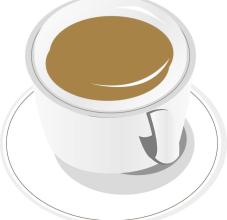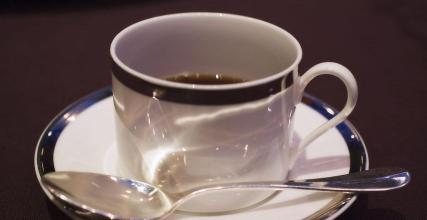Rich and balanced Bolivian coffee Fine coffee beans Flavor Taste Manor Features
The President is the head of State and Government and the commander-in-chief of the armed forces. He is directly elected and cannot be re-elected. Parliament is the legislative body of the country. The Cabinet is the executive branch of the government, directly under the leadership of the President. The establishment of a vice-president was restored; provincial mayors were directly elected; personal security, belief, association, freedom of labour, thought and education were guaranteed, and the State was responsible for respect for human rights. [7]
Constitution
The President of Bolivia
The President of Bolivia
Promulgated in 1826 and revised three times in 1967, 1994 and 2009. The Constitution of the Republic stipulates that the state shall be a presidential republic, and the President and Vice-President shall be directly elected for a term of five years and shall not be re-elected, but may be elected every other term; the Vice-President shall not be elected for the next President or Vice-President (1) for the Socialist Movement (Movimiento Al Socialismo): established in 1995. The ruling party. The emerging leftist political party is a "widely participating national democratic force". Oppose neoliberal economy and economic globalization. The largest political force in the Bolivian parliament. The leader of the party is President Juan Evo Morales Juan Evo MORALES Ayma.
(II) Bolivian Progressive Plan-National Solidarity Party (Plan Progreso para Bolivia-Convergencia Nacional, PPB-CN): the largest opposition party, formed in September 2009 by the merger of the Bolivian Progressive Plan, the Bolivian Autonomous Party and the Nationalist Revolutionary Movement, led by Manfred Reyes Villa (Manfred REYES Villa).
(3) National Unification Party (Unidad Nacional): founded in 2005. Advocate safeguarding the interests of the middle class and the business community. The third largest political force in the Bolivian parliament. The chairman of the party implements compulsory military service for Dolia MEDINA, the cement king. All male citizens who have reached the age of 18 must perform military service for one year. Since 1995, the length of service for officers has been extended to 35 years. The total strength is 46000, including 34000 in the army, 6400 in the air force and 4600 in the navy. The total strength of the police force is 20,000, which is under the jurisdiction of the Ministry of the Interior. The equipment of all branches of the armed forces is relatively outdated. The president is the commander of the armed forces, and the commander-in-chief of the armed forces is General Edwin de la Fuente.
Bolivia is 1/3 of the Andean mountains, rugged terrain, mainly road transport, accounting for more than 85% of transportation. The main railway and road networks are concentrated in the west, and remote areas rely on air communication. But road coverage is the lowest in South America. And there is also the Ronggas Highway, the world's first insurance road known as the "road of death". There is no developed economy here, and it is one of the poorest countries in South America. But with the beautiful scenery of the lake and the unique scenery of the Andes, the Uyuni Salt Lake, known as the Mirror of the Sky, is a wonder of the world. Bolivia's coffee was actually commercially produced in the 1950s (at first coffee trees were just planted around the house as a fence). In a very short time, however, the coffee industry developed rapidly, thanks to the influence of the frost in Brazil in 1975. At that time, the coffee industry in Brazil was hit hard, and the coffee industry in Bolivia took the opportunity to develop rapidly.
In the past, most of the coffee in Bolivia was of mediocre quality, but in recent years, the production of boutique coffee has developed rapidly, and there have been a lot of pretty good beans. In recent years, the COE (Cup ofexcellence) system, which was first implemented in Brazil, has gradually become popular. Bolivia has also introduced this system, which, on the one hand, can stimulate the enthusiasm of coffee farmers, on the other hand, it is also to improve the quality of coffee. COE beans are better than ordinary coffee in both raw and roasted coffee.
The aroma of Bolivian coffee is rich and unique, both the aroma of ground beans and the aroma of coffee are obviously rich, similar to the mixture of flower and fruit aroma, impressive.
The acidity is medium and low, but the feeling is not monotonous, but calm and generous, soft and fresh. In the sour taste, you can even feel the sour taste of citrus fruits.
The overall taste of Bolivian coffee is rich and balanced, in addition to the beautiful sour taste, there is also a shallow chocolate flavor, smooth taste is more smooth, by contrast, the bitter taste is not obvious. The aftertaste of the coffee is very good, and the sweet taste in the mouth lingers after drinking it, and the wonderful experience of this coffee is unforgettable.
Every coffee producing country should not be ignored, because good coffee is regardless of country, and good coffee should be together with everyone.

Important Notice :
前街咖啡 FrontStreet Coffee has moved to new addredd:
FrontStreet Coffee Address: 315,Donghua East Road,GuangZhou
Tel:020 38364473
- Prev

Unique milky sweet rose coffee boutique coffee bean flavor taste introduction to the characteristics of the manor producing area
The land of the District of Columbia [2] originally came from Maryland and Virginia. When the District of Columbia was founded, the north bank of the Potomac River included Georgetown (Georgetown,D.C.), Washington City (Washington City,D.C.) and Washington County (Washington County,D.C.). In 1878, the three places merged into Washington, D.C., and the city of Washington.
- Next

The delicious flavor of Ecuadorian coffee the characteristics of Galapagos Coffee production area
Other coffees worth mentioning are Juan Vinas,PR, H.Tournon, Windmill,SHB, Monte bello and Ssnta Rosa. Fine coffee is generally grown in Geredia and the central canyon. Another eye-catching coffee is Sarchi coffee (
Related
- Detailed explanation of Jadeite planting Land in Panamanian Jadeite Manor introduction to the grading system of Jadeite competitive bidding, Red bid, Green bid and Rose Summer
- Story of Coffee planting in Brenka region of Costa Rica Stonehenge Manor anaerobic heavy honey treatment of flavor mouth
- What's on the barrel of Blue Mountain Coffee beans?
- Can American coffee also pull flowers? How to use hot American style to pull out a good-looking pattern?
- Can you make a cold extract with coffee beans? What is the right proportion for cold-extracted coffee formula?
- Indonesian PWN Gold Mandrine Coffee Origin Features Flavor How to Chong? Mandolin coffee is American.
- A brief introduction to the flavor characteristics of Brazilian yellow bourbon coffee beans
- What is the effect of different water quality on the flavor of cold-extracted coffee? What kind of water is best for brewing coffee?
- Why do you think of Rose Summer whenever you mention Panamanian coffee?
- Introduction to the characteristics of authentic blue mountain coffee bean producing areas? What is the CIB Coffee Authority in Jamaica?

